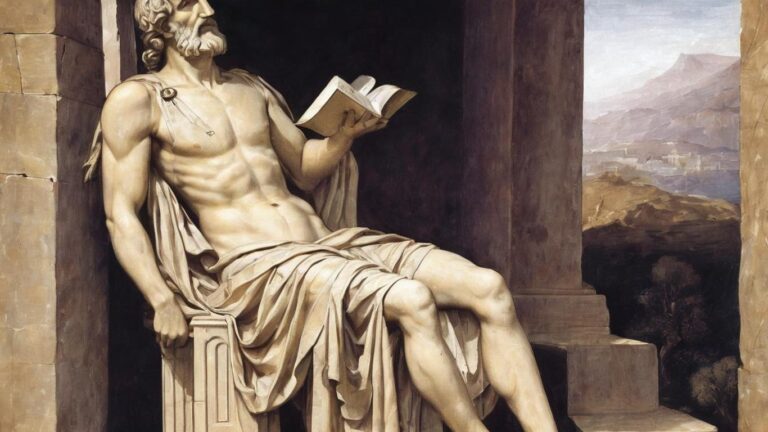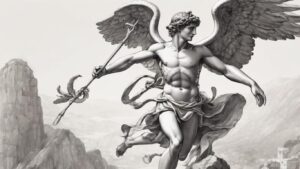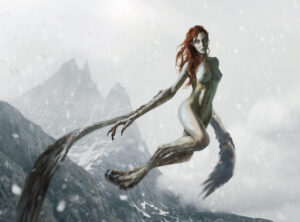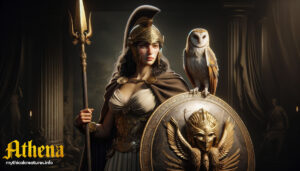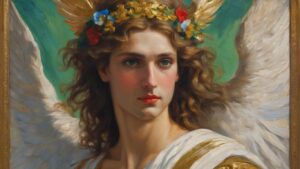Table of Contents
Hesiod, the first didactic poet, composed philosophical poems that were easily understandable. His epic poems, which covered subjects such as working life, agriculture, and the Greek gods, served as educational tools. Hesiod’s works are considered fundamental historical artifacts due to their instructive nature.
Family
After his father’s death, Hesiod engaged in a bitter dispute with his brother, Perses, over the property left by their deceased father. Unfortunately, Perses emerged victorious in both disputes, and it is noteworthy that the same judges decided each alleged disagreement. However, scholars approach the account of this property dispute with caution, as it comes from Works and Days, a text that is considered by many as a potentially autobiographical narrative of Hesiod’s life.
History
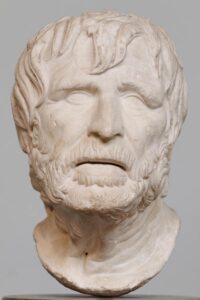
Due to abject poverty, Hesiod’s father undertook a journey across the sea from Cyme in Aeolis (modern western Turkey) to Boeotia, specifically at the base of Mount Helicon. Positioned at the summit of Mount Helicon was the dwelling place of the Muses, the goddesses of inspiration. Allegedly visited by the Muses, Hesiod received an order to compose poetry. His poetry delineated a family tree of the Greek gods, tracing the conception of creation. For instance, Gaea, the goddess of the Earth, “yawned” into existence the Earth, giving rise to mountains, heaven, sea, chaos, order, work, life, economics, and agriculture.
Beyond serving religious purposes, Hesiod’s work also imparted detailed agricultural knowledge rooted in his experience as a farmer and shepherd. According to Hesiod, the purpose of man was work, asserting that every individual needed to engage in labor not only for survival but also to lead a fulfilling life. Hesiod, among the first Western poets, compiled his work in a written form, departing from the prevailing oral tradition in which epic poetry was transmitted. This shift was facilitated by the advent of the Greek alphabet, which emerged long after the spoken language. The utilization of the written word revolutionized the possibilities of epic poetry, marking a departure from the tradition of solely relying on memory for recitation.
Characteristics
As Hesiod tended to his sheep, he would commit his poems to memory, reciting heroic songs. His conviction in the bestowment of poetic gifts by the Muses was rooted in his hard work on the land. According to legend, the Muses bestowed upon Hesiod a poet’s staff and blessed him with a poet’s voice, which he then employed to craft his epic poems. In the traditional residence of the Muses atop Mount Helicon, Hesiod’s poetic journey may have found its origins.
Given the geographical significance of his location, one can speculate that Hesiod drew inspiration from the spirit of the land and the enveloping myths. This, in turn, could have facilitated the amalgamation of concepts that forms the essence of his epic works.
Literature
Scholars agree
Hesiod’s literature, around 700 B.C.E., postdates Homer. The absence of a chronological system in Ancient Greece causes dating disputes.
Hesiod, credited with two epics, had more previously attributed. Scholars now accept others were by poets from Hesiod’s school. Theogony, an epic, explores the gods’ genealogy, “theo” from Greek “theos” and “gony” from Latin “gonia.” Works and Days, another epic, marks didactic poetry’s first instance, instructive and informative.
One disputed work, The Shield of Heracles, was once attributed to Hesiod. Hesiod, earliest author from mainland Greece with surviving original works, includes contributions from other poets in his works. Comparing Hesiod and Homer, both epic poets, Hesiod’s language, accessible and practical, differs. His poems, despite being shorter, chronicle Ancient Greek life, agriculture, work, and gods’ relationships.
Theogony, though complex, unrivaledly depicts divine beings’ intricate relationships. Poetry, perceived as a gift from the Muses, shapes Hesiod’s relationship with self, land, cosmos, and work, aiming to please the gods.
Explanation of the Myth
Myth holds that Hesiod and Homer had a poetry contest. The tale stems from a Works and Days extract, where Hesiod won a competition in Chalcis, Euboea, at the Funeral Games. The sons of Amiphidamas awarded Hesiod a bronze tripod, which he purportedly gifted to the Muses of Mount Helicon. This account sparked later rumors of a poetry contest between Hesiod and Homer, generally considered false, as scholars agree they never crossed paths.
Ancient Greeks perceived inspiration as a divine or semi-divine practice, and poetic excellence was seen as divine work. This belief is evident in several factors: Hesiod attributing his poetic gift to the Muses, his work revolving around Ancient Greek gods, and him gifting his award to the Muses. This belief reflects the cultural stance of polytheistic Ancient Greece.
Death
After losing his alleged second lawsuit to Perses, Hesiod fled to Naupactus. The sons of his host in Oeneon allegedly murdered him because he seduced a maiden. It is claimed that their offspring was the lyric poet Stesichorus, the first of his kind in the West.
Following the Delphic Oracle’s order, they took Hesiod’s bones to Orchomenus. A monument was then constructed in the marketplace to commemorate him.
FAQ
When did Hesiod live?
He is believed to have lived around 700 B.C.E.
Did Hesiod have a poetry contest with Homer?
No, the contest is considered a myth; scholars believe they never met.
How did Hesiod die?
Allegedly murdered in Naupactus by the sons of his host in Oeneon.
What influenced Hesiod's poetry?
He attributed his inspiration to the Muses and focused on Greek mythology.
Where are Hesiod's remains?
His bones were taken to Orchomenus on the order of the Delphic Oracle.
Did Hesiod have any descendants?
It's claimed that Stesichorus, a lyric poet, was his alleged descendant.
Why is Hesiod significant?
He is a crucial figure in Greek literature, providing insights into mythology and daily life.
